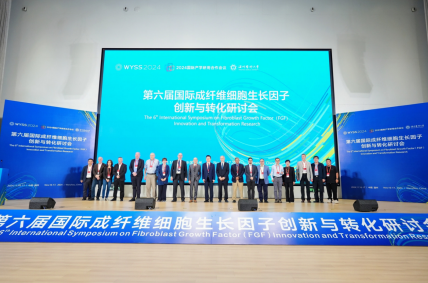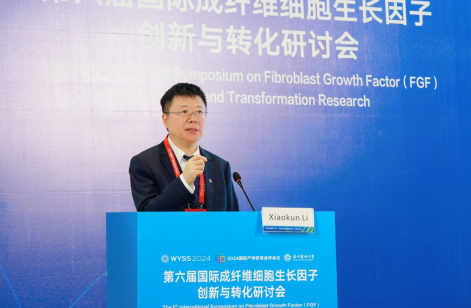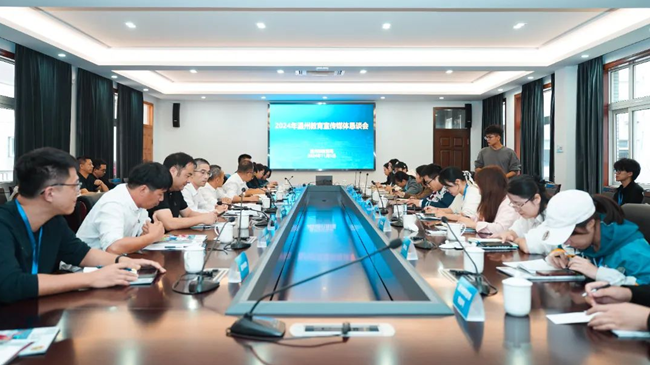International fibroblast growth factor symposium held in Wenzhou
时间:2024-11-20 16:57:03 来源 : DiscoverWenzhou 作者 :
From Nov. 16th to 17th, the 6th International Symposium on Fibroblast Growth Factor (FGF) Innovation and Transformation Research was held at the Chashan Campus of Wenzhou Medical University. The symposium showcased the latest advancements in FGF signaling in life sciences, disease mechanisms, and therapeutic applications, aiming to promote the translation of scientific research into clinical medicine.

The 6th International Symposium on Fibroblast Growth Factor (FGF) Innovation and Transformation Research is held in Wenzhou, Zhejiang, from Nov.16-17. [Photo courtesy of Wenzhou Medical University]
The symposium was both diversified and international. It brought together nearly 20 international guests from 7 countries, featuring keynote reports focusing on"FGF and Disease,""FGF and Development,""FGF and Metabolism,""FGF and Stem Cells,""FGF and Tumors" and other fields. The symposium provided a dynamic platform for academic discussions, promoting interdisciplinary exchange and cooperation, and facilitating the translation of scientific research into clinical applications.

Li Xiaokun delivers a keynote speech at the 6th International Symposium on Fibroblast Growth Factor (FGF) Innovation and Transformation Research in Wenzhou, Zhejiang. [Photo courtesy of Wenzhou Medical University]
At the forum, Li Xiaokun, academician of the Chinese Academy of Engineering, delivered a keynote report titled"Theoretical Innovation and Clinical Translation Research of Growth Factor Drugs," elaborating on the medical value and in-depth research of growth factors. Li's team started their research by studying lizard tail regeneration and the self-healing of human skin after injury, successfully addressing the challenge of treating hard-to-heal wounds on the surface of the human body in China. Their work led to breakthroughs in the key technologies for original protein drugs based on cell growth factors and the successful industrialization of these innovations in the country. Now, the team has developed and put into production three types of new drugs of FGF, widely used in the treatment of difficult-to-heal ulcers such as war injuries, burns, and diabetic foot, benefiting more than 80 million patients. In addition, four drugs have been approved for clinical trials, and 45 national invention patents have been obtained by the team.
David Ornitz, a famous American biologist and professor at Washington University in St. Louis, praised Li's report as it showed the history of the FGF family and its functions in diseases. He also said that Wenzhou is one of the leaders in the FGF field, studying the functional mechanisms of FGF and its therapeutic potential, which is highly important.
The International Symposium on FGF Innovation and Transformation Research has been successfully held for six sessions since 2010. It has received enthusiastic support and widespread participation from renowned experts and scholars in the global FGFs/FGFRs research field, becoming the top academic event in this field in China.
Jos Jonkers, a professor of molecular experimental oncogenetics and cancer therapeutics at Leiden University in the Netherlands, said that he has benefitted from the symposium by learning about the different roles of FGF in various pathologies and normal development. He also spoke highly of the reports at the symposium.
The study of growth factors has become a central field in modern medicine. With its cutting-edge research and core technologies, Li's team is driving the future development of the growth factor field and contributing to the advancement of human health.

e3e60620-2bb5-430b-98a1-75fa412e7c64.png)
